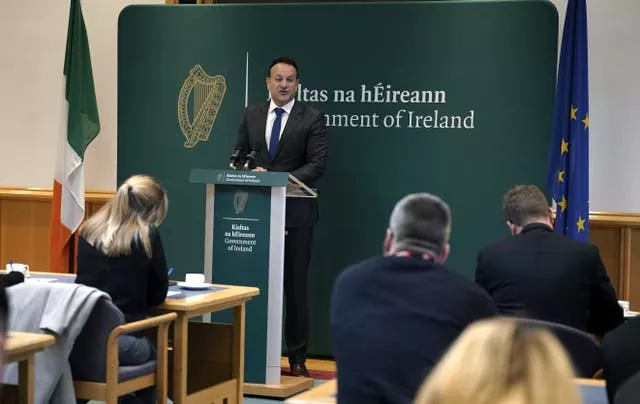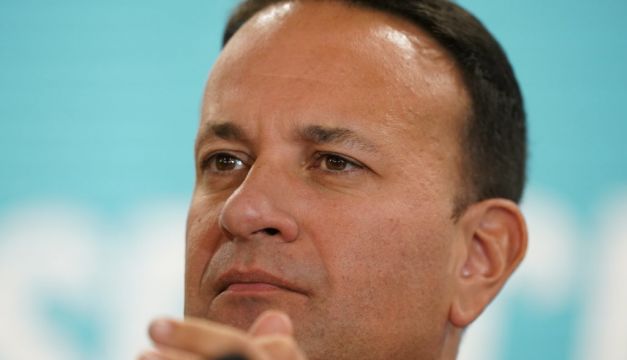A key focus of Government's welfare policy will be maintaining a “decent gap” between jobseeker support and pay, the Taoiseach has said.
Leo Varadkar said the Coalition also wanted to continue progress in eliminating “traps” that disincentivise work, ensuring people do not lose out on certain benefits because they choose to take a job.
At his end-of-year media briefing, Mr Varadkar was asked whether the Government would continue making universal increases in core welfare benefits, such as the €12 rise announced in the budget, or if there would be a move to treat Jobseeker’s Allowance differently because of high levels of employment.
“Provided the country can afford it and provided we stick with economic policies that have worked for Ireland, we will continue to increase pensions and welfare in the years to come,” Mr Varadkar responded.
“When it comes to pensions, we’ve broadly set the benchmark that the pension should be pitched at around a third, around 33 per cent or 34 per cent of median earnings. We think that’s a good benchmark. We will keep pensions at that rate.
“When it comes to other welfare payments, we will increase them in line with the cost of living, or a little bit better if we can afford to do so.”
Mr Varadkar signalled a different approach in assessing increases in Jobseeker’s Allowance.
“One thing we really want to make sure happens in relation to jobseeker payments, which is slightly different, is we want there to be a decent gap, if you like, between jobseeker’s payments and what you get working.
“The gap actually has widened in recent years. So, even though we’ve increased the amount that a jobseeker gets paid every week, we’ve increased the national wage by more and that means the incentive to work is greater.

“That’s done to make sure that if people ever are in a position where they’re choosing between work and welfare, the choice of work is more attractive.
“And it’s not just about the living wage which we’re introducing. The fact that half the country now qualifies for free GP care was in recognition of that, because it was one of the fears that people would have, that if they took up work they might lose their free GP care or they might lose their entitlement to housing, or they might lose their SUSI grant, or they might lose their access to subsidised child care.
“So what we’ve done in order to make work pay, to encourage work, is to increase wages, but also eliminate some of those traps, if you like, where people who work longer hours or take up work or get a pay increase actually end up losing benefits that they have, and we made a lot of progress, I think, in that regard.
“One of the other changes to jobseeker’s as well will be the introduction of what is called pay-related benefits. And that’s where, if somebody has been paying into the system, if they’ve been paying PRSI for five, six or 10 years and lose their job, they will get a higher payment in the first few months of unemployment.
“It will be like what the case was with the pandemic unemployment payments and that’s really just to recognise the fact that people who make a contribution should have that contribution recognised.”







